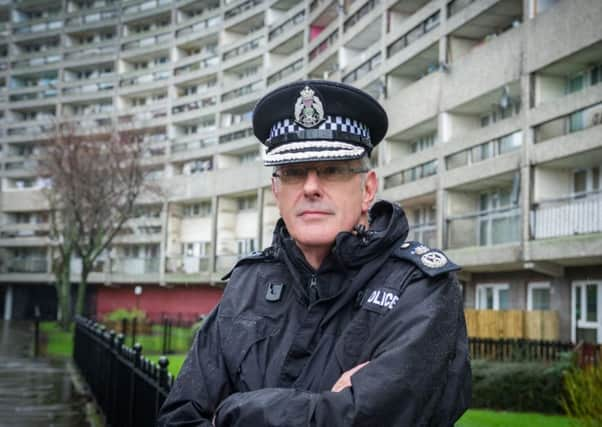Police chief under fire over failure to produce spy row documents


Chief Constable Phil Gormley is due to appear before MSPs next week to give evidence on internal communications and whistleblowing within the national force.
It follows a ruling late last year by the Interception of Communications Commissioner’s Office (Iocco) that Police Scotland contravened data guidelines while attempting to expose details of a journalist’s source.
Advertisement
Hide AdAdvertisement
Hide AdA number of senior officers have refused to appear before MSPs to give evidence at Holyrood, but Mr Gormley has agreed to appear on Tuesday.
But in a letter to the chief constable ahead of the meeting, Christine Grahame MSP said her committee was “disappointed” Police Scotland had failed to provide documentation requested several weeks ago.
MSPs are seeking 14 Iocco reports on inspections of Scottish police forces carried out between 2012 and 2014 and a Police Scotland response.
In a letter from Police Scotland’s head of legal services dated 7 January, the force said the documents would have to be examined and redacted before they could be released.
In her letter to Mr Gormley, Ms Grahame expressed her frustration that work had still not been completed.
She said: “I am writing to you to express the committee’s disappointment that these documents are not yet available, given that the original request for relevant paperwork was made on 16 December.
“We are also disappointed that the documents will apparently not be ready to be shared with the committee before the 1 March meeting.”
In November, Iocco said Police Scotland had been “reckless” when it used the Regulation of Investigatory Powers Act (Ripa) to obtain details of a journalist’s source without first obtaining judicial approval.
Advertisement
Hide AdAdvertisement
Hide AdThe force’s Counter Corruption Unit (CCU) began searching for the source of a leak after stories appeared in the media about the investigation into the unsolved murder of Emma Caldwell in 2005.
Following the press reports, Lord Advocate Frank Mulholland ordered that the case be re-investigated.
Sir Stanley Burnton, the Interception of Communications Commissioner, said Police Scotland had sought communications data to determine a journalist’s source or the “communications of those suspected to have been acting as intermediaries between a journalist and a suspected source”.
He said four people had been “adversely affected” by the contraventions.
Appearing before the justice committee in December, Deputy Chief Constable Neil Richardson said a senior officer had “misinterpreted” the new code governing the communications of journalists 22 days after it came into effect on 25 March last year.
Commenting on Ms Grahame’s letter, a Police Scotland spokesman said: “We are aware of the letter and will respond in due course.”